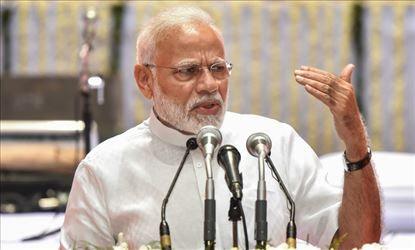
Reportedly as the global automotive climate shifts towards clean and eco-friendly alternatives to internal combustion engines (ICE), the Indian Government also have been passing regulations and encouraging electric vehicles in the country. Meanwhile the recent cut in GST rates and the FAME II scheme hints at an imminent electric revolution that stands before the Indian automotive industry.

Furthermore in light of slowing automotive sales in the country, auto giants have been addressing the government's lack of action towards resolving the issue. Furthermore the auto industry has been opposing a proposal by Niti Aayog to push for full conversion to EVs for ICE three-wheelers by 2023 and two-wheelers with engine capacity of 150cc or below by 2025, saying a transition was completely uncalled for and could jeopardize the industry.
Moreover Prime Minister Narendra modi assured that conventional engine vehicles and electric vehicles (EVs) can co-exist in india, saying it would encourage investment and job creation in future. Society of Indian Automobile Manufacturers (SIAM) President Rajan Wadhera said the assurance is completely in-line with SIAM's recommendations that all relevant technologies should co-exist in india's journey towards sustainable mobility which instills confidence to the industry to get going.




